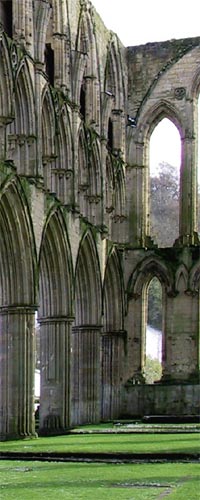
|
||
|
|
Basics
Start Here
Anglicans Believe ...
The Prayer Book
The Bible
News
News Centre
News Archive
Newspapers Online
Official Publications
Resources
Resources A to Z, including
Biblical Study
Book of Common Prayer
Books and Magazines
Exchanges
Events
Liturgy
Music
Religious Orders
Preaching
Theology
Youth
Worldwide Anglicanism
Anglican Communion
In Full Communion
Not in the Communion
Dioceses and Parishes
Africa
Australia
Canada
England
Europe
Ireland
Japan
New Zealand
Scotland
USA
Wales
World
Anglicans Online
Archives
Add a Site to AO
Tell Us What You Think
Link to AO
Staff
Awards and Publicity
Beginnings, AO Today
Our Sponsors
Hallo again to all.
No doubt many of you have heard Jaroslav Pelikan's statement that 'Tradition is the living faith of the dead, traditionalism is the dead faith of the living.' So we think of ourselves, quite alive, as people lucky enough to share the living faith of the dead.
 We
at Anglicans Online consider ourselves to be traditionalists. Since we know that this word has a broad spectrum of meanings, please bear with
us whilst we elaborate. We honour, respect, and even love our church's traditions, but we are somewhat discerning in making up our minds about
just what those traditions are.
We
at Anglicans Online consider ourselves to be traditionalists. Since we know that this word has a broad spectrum of meanings, please bear with
us whilst we elaborate. We honour, respect, and even love our church's traditions, but we are somewhat discerning in making up our minds about
just what those traditions are.
Recently we returned to Yorkshire, where we were raised, and saw again the evocative 'bare ruined choirs' of Rievaulx Abbey, built by the Cistercians in the 11th century and disbanded by Henry VIII in the 16th century. A week later we attended the consecration, in Rome, of Pierre Whalon as Bishop in Charge of the Convocation of American Churches in Europe. Both of these are quite relevant to our sense of being traditionalists.
Rievaulx Abbey is, today, just a collection of ruined buildings. Walking around it, alone in the freezing rain, we were transported in time, first to its beginnings and then to its dissolution. When it was founded, it served a vital need for the Christians in the North of England. When it was dissolved—whether or not one agrees—Henry VIII proclaimed that it had outlived its usefulness. Surely many 16th-century traditionalists were outraged by the dissolution of abbeys and monasteries, and it is likely that several generations of believers felt that the dissolution was an unparalleled evil. From the perspective of history, the church survived this event as it has survived so many others, and certainly it can be argued that Henry VIII was correct in his argument (even if it somewhat disguised political ends and practicalities) that the entrenched and isolated communities no longer met the goals of their founders and the needs of the larger church. The issue is not the value of monastics to the church, but the role of a particular edifice and community for doing and being what monastics bring to the church. Is it possible that Henry did the right thing for the wrong reason?
Bishop Whalon, consecrated today, will be dead within 100 years and probably within 50 years, joining the pantheon of dead bishops that were and are the bedrock of our church. Yet the tradition that he has joined, the apostolic successors, will live on. That tradition is alive because it renews itself with each new consecration, just as the church renews itself with each new baptism. We often say to ourselves, silently at the break of day, 'Indeed I AM part of the body of Christ.' Tradition lives because it inhabits the living, and, like all living things, they change as they grow and learn. Perhaps what transmogrifies tradition into traditionalism is anchoring it to the past, like old stone buildings, rather than to the future, passing in reverence from one person to another and one era to another.
As we look around the world of our beloved church, we find ourselves wondering which institutions will be in ruins in the coming centuries and which institutions will live on. We are confident that, whatever lives on, the bishops of our church will be a living part of it.
See you next week.

|
 |
| Cynthia
McFarland cmcf@anglicansonline.org |
Brian Reid reid@anglicansonline.org |
Last updated: 18 November 2001
URL: http://anglicansonline.org/